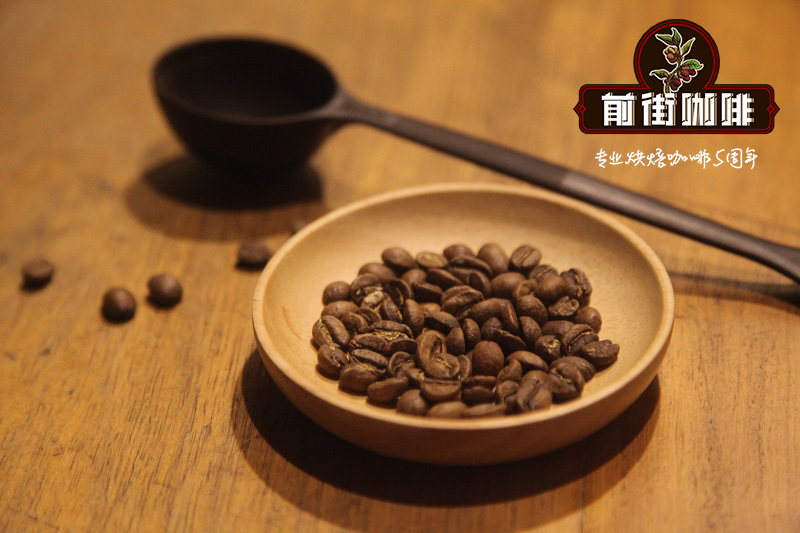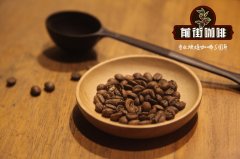Do you have Luodou in Tanzania Coffee varieties the characteristics of Kilimanjaro Coffee gifts from volcanoes

Professional coffee knowledge exchange more coffee bean information please follow the coffee workshop (Wechat official account cafe_style)
Qianjie-Tanzania Coffee introduction
After Tanzania became independent in 1961, the government focused on the coffee industry, trying to achieve the goal of tripling coffee production by 1970, but the plan did not materialize. After slow industrial development, high inflation and economic depression, Tanzania has become a multi-party democracy.
In the early and mid-1990s, the coffee industry carried out a series of reforms. Coffee producers are allowed to sell more directly to buyers, rather than all through the National Coffee Marketing Board. The coffee industry was hit hard in the late 1990s, when coffee blight spread across the country, reducing the number of coffee trees near the northern border of Uganda. Today, Tanzania produces 70% of Arabica and 30% of Robusta.
First of all, the Arabica series includes Tibica, Blue Mountain and Arusha in addition to the main varieties of Bourbon and Kent. And then there's Robusta.
90 per cent of Tanzania's coffee comes from 450000 small farmers and the other 10 per cent from larger estates. It is possible to trace coffee back to farmers'co-operatives and wet treatment plants, and if it is manor coffee, a single coffee farm where the source can be found. All the high-quality coffee I have tasted in recent years comes from the manor, and I would suggest starting with this kind of coffee.
The coffee harvest season in Kilimanjaro extends from October to February of the following year. About 1 million people in the area live on the coffee-growing slopes of the mountains, and coffee cultivation is the only income for many of them. Recently, coffee leaf rust (Roya) caused by climate change and temperature change has become the biggest threat to Kilimanjaro coffee beans.
Kilimanjaro coffee, grown on the volcanic slope of the highest peak in northeastern Tanzania, shows a distinctive flavor, with a balanced taste and bright acidity, is one of the most exquisite coffee species in Africa.
Knowledge: Tanzania, located in eastern Africa, south of the equator. It is bordered by Kenya and Uganda to the north, Zambia, Malawi and Mozambique to the south, Rwanda, Burundi and the Democratic Republic of the Congo to the west, and the Indian Ocean to the east.
In short: Qianjie is a coffee research hall, happy to share the knowledge about coffee with you, we share unreservedly just to make more friends fall in love with coffee, and there will be three low-discount coffee activities every month. The reason is that Qianjie wants to make more friends drink the best coffee at the lowest price, which has been Qianjie's tenet for 6 years!
END
Important Notice :
前街咖啡 FrontStreet Coffee has moved to new addredd:
FrontStreet Coffee Address: 315,Donghua East Road,GuangZhou
Tel:020 38364473
- Prev

What are the characteristics of Tanzanian coffee with classic African flavor
Professional coffee knowledge exchange more coffee bean information please follow the coffee workshop (Wechat official account cafe_style) front street-Tanzania coffee production area, long area, Arabica Coffee and Robusta Coffee total coffee area is estimated at 265000 hectares. Coffee production in Tanzania is concentrated in the north, west and south of Tanzania. Growth altitude
- Next

Kilimanjaro coffee varieties have refined flavors Kilimanjaro coffee tastes amazing
Professional coffee knowledge exchange More coffee bean information Please pay attention to coffee workshop (Weixin Official Accounts cafe_style) Front Street-Tanzania Coffee Introduction Tanzania Kilimanjaro coffee, mild acidity, attractive aroma, very early won the love of Europeans, among the ranks of world coffee brands. The Europeans gave Tanzania coffee the nickname gentleman, Chinese coffee
Related
- Beginners will see the "Coffee pull flower" guide!
- What is the difference between ice blog purified milk and ordinary milk coffee?
- Why is the Philippines the largest producer of crops in Liberia?
- For coffee extraction, should the fine powder be retained?
- How does extracted espresso fill pressed powder? How much strength does it take to press the powder?
- How to make jasmine cold extract coffee? Is the jasmine + latte good?
- Will this little toy really make the coffee taste better? How does Lily Drip affect coffee extraction?
- Will the action of slapping the filter cup also affect coffee extraction?
- What's the difference between powder-to-water ratio and powder-to-liquid ratio?
- What is the Ethiopian local species? What does it have to do with Heirloom native species?

